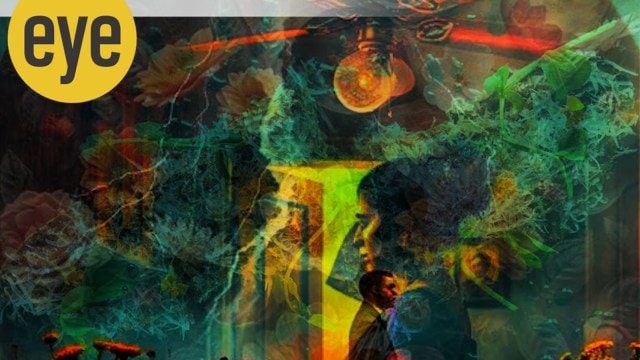People who are the blueprints: A story of women (and men) misread
Gender is not destiny. Emotion is not weakness. Strength is not shape-shifting into masculine myth. We must let go of these tropes.
 'It takes a whole rainbow to make the sky sing. And none of us carries every colour'
'It takes a whole rainbow to make the sky sing. And none of us carries every colour'People talk about strength like it’s a spectacle. Something shouted from rooftops. Something dressed in armor, bathed in the spotlight, broadcast like a breaking headline. But I grew up in a house where strength was not declared — it was done. It simmered the dal before dawn. It stitched together school uniforms in silence. It carried grief and groceries with the same grace. It was power without performance, presence without proclamation.
My mother wasn’t just strong. She was sovereign. She spun the world without asking for applause. When my father passed away, people expected the usual script: the grieving widow, reduced and retreating, her radiance dimmed by loss. But what they found was a woman unbroken, unburdened, utterly unshaken. She handled documents, decisions, debts and destinies with the same calm with which she had once packed lunch boxes and managed birthday parties. And somewhere along the way, someone — someone who had known her for decades — looked at her and said, in faint disbelief: Sunita, I didn’t know you had a sense of humor. That would’ve been hilarious if it weren’t so telling.
Another friend, thankfully sharper, said before my mother could respond: Excuse me? You think Deepak would’ve married a shrinking violet? A wallflower who wilts at dusk? As if love itself were foolish enough to pair fire with fog. As if brilliance would choose to build with fragility.
People see only what they expect. And when strength wears a silk sari and speaks softly, it gets mistaken for servitude. They forget that royalty can be wrapped in cotton. That command can whisper.
My mother chose her role — not out of obligation, not out of invisibility, but out of intention. She played the backbeat while others danced the chorus. She lit the lantern and let others read the room. And she did it not with martyrdom, but with mastery. What most missed was her choice. Because when joy and generosity are given freely, they are too often mistaken for default, not design.
But my father — he saw it all. He always did. He didn’t just know the weight she carried — he revered it. He knew he was the sun, but she was the orbit. Every room that loved him — he knew she had choreographed the furniture. Every meal that welcomed guests — he knew she had cooked the comfort into it. He never let a thank you pass unspoken. And he taught me this: not just to look, but to see. Not just to acknowledge, but to understand.
My aunt, Deepa, came first. Electric. Unapologetically unforgettable. And my father, born soon after, was named Deepak — a lamp lit in her honor. They were the fire and the fireworks. They held rooms in the palms of their hands. But even they — these commanding comets — knew they were anchored by quieter stars. They were bold because someone else was steady. They were fearless because someone else had foresight.
So no, this is not a story of invisible women. This is a story of women misread. Of women underestimated by everyone except the ones that mattered most. This is a story of sovereignty in softness, and dominion in domesticity. This is about the lioness who lays low — not because she is timid, but because she knows when not to pounce.
After my last piece, readers wrote to me with full hearts. They shared griefs and guilts, reconciliations and realizations. One called it “egoless empathy”. Another said it reminded them of someone they still hadn’t forgiven — and maybe now could. But what I heard behind the words was a quiet thunder: we are all yearning to be seen. Not just for our success or charisma — but for our caretaking. For our choices. For our quiet.
And so this next chapter, this next offering, is not about healing. It is about honoring. Honoring the backstage builders. The ones who don’t hold the mic but write the script. The ones who don’t need to be center stage to carry the whole show.
We’ve all had a Sunita in our lives — someone whose brilliance was buried under the weight of our assumptions. We’ve all overlooked a mother, a teacher, a driver, a nurse, a partner — someone who gave without grandstanding. And we’ve all had the grace, if we’re lucky, to one day look again and realize: they were never background. They were the blueprint.
And it’s not only women who live this. There are men — strong, kind, intuitive men — who sit in the passenger seat not because they’re lost, but because they trust the woman driving. There are fathers who fold laundry, sons who soften, lovers who listen. They don’t compete with the woman’s rise. They root for it. They don’t tally power — they trade it. They don’t need a pedestal, just partnership.
Let’s be clear: gender is not destiny. Emotion is not weakness. Strength is not shape-shifting into masculine myth. We must let go of these tropes. They do nothing but tighten the noose around our full humanity.
We don’t need to gender grace or pigeonhole power. The man who lets his wife take the mic is not emasculated — he’s enlightened. The woman who runs the household while her husband writes poetry is not traditional — she’s tactical. The daughter who says nothing but always shows up. The son who remembers the way his mother likes her tea. These are the quiet champions of the modern world.
Let’s teach each other to see with new eyes. To feel with more frequency. To celebrate not the role, but the rhythm — how it’s played, why it’s chosen, and who benefits from its beat.
It takes a whole rainbow to make the sky sing. And none of us — not one — carries every color.
So here’s to the men named after women. Who grow into that name with reverence. Who wear it like a badge, not a burden. Here’s to the women who lead from the front, the ones who lead from the kitchen, and the ones who lead by letting go. Here’s to every person who does what must be done — without hashtag, without headline, without needing to be hoisted on a pedestal just to feel visible.
Here’s to the mother who laughed more after loss. To the father who didn’t flinch when his daughter out-earned him. To the partner who didn’t need to be praised for showing up, because love — to him — meant presence, not pageantry.
This is not an essay. This is an offering. A call. A remembering. Because greatness isn’t always loud. Because sometimes the real monument isn’t the man at the podium — it’s the woman who ironed his shirt.
Sometimes the bravest act is to stand beside someone and let them shine. Sometimes the truest power is the power to witness.
So no, my mother wasn’t hiding. She was holding everything up. And my father — my father never missed a beat of her brilliance. And now I never will.



- 01
- 02
- 03
- 04
- 05




























